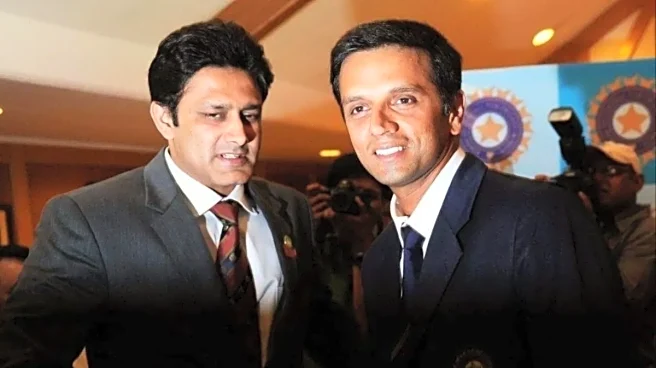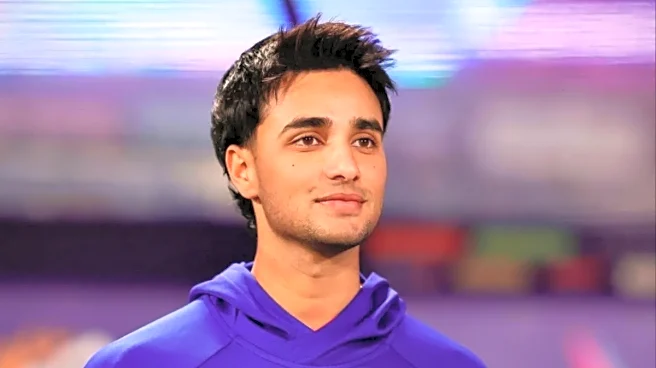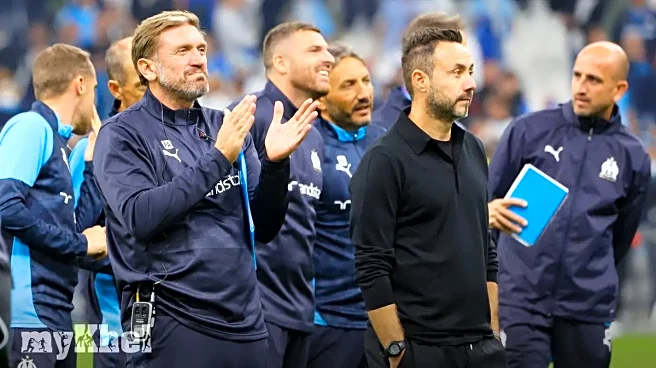New Delhi, October 28: Two-time world champion Nikhat Zareen knows that boxing is not just a contest of landing punches, but of endurance, emotion, and the mind. After bowing out in the Round of 16 at the Paris
Olympics, where she lost to top-seeded Wu Yu of China, who was also the Asian Games champion, the Indian star has been candid about the challenges of maintaining form in a sport that rarely pauses.
Her comeback began earlier this year at the in Liverpool, held under the new global governing body, World Boxing.
Competing in her first international event after Paris, Nikhat made a solid run to the quarter-finals before losing 5-0 to Buse Naz Çakıroğlu, the two-time Olympic silver medallist from Turkiye (formerly known as Turkey). That defeat, though, offered her perspective on the toll of constant competition.
"You can't peak every time," Nikhat told myKhel during an interaction with the media in the national capital. "The boxing calendar is nonstop, from qualifiers to the World Cups and Championships, and sometimes your body doesn't respond even if your mind wants to fight. "
Balancing Recovery and Readiness
For Nikhat, the past two years have been a blur of training camps, ranking events, and qualification tournaments. Between chasing Olympic dreams and defending her world titles, recovery has often taken a backseat. "After Paris, I needed to slow down. I wasn't at my physical best yet, but mentally, I knew I had to keep moving forward," she admitted.
Sports psychologists call this competitive burnout, a state of physical fatigue and mental drain caused by overtraining and overexposure. Many elite athletes face it, especially in individual combat sports where qualification systems are point-based and unforgiving.
Picking Bouts Wisely
That's why the 29-year-old now prefers being selective about her competitions. "You have to pick your battles, not every ring appearance defines your career. It's about performing when it really counts," she said.
Asked about whether elite boxers like her can choose which tournaments to enter, Nikhat explained that the decision rests with the coaching staff and the High-Performance Director (HPD). "It's not entirely in our hands," she said.
"The coaches and HPD make plans to ensure we peak at the right time. The main boxers should focus on major events like the Asian and Commonwealth Games. Playing every competition can burn you out physically and mentally, so it's important to pick the right ones. " The BFI is still on the lookout for a new High-Performance Director after Bernard Dune.
Her next big test will be the World Boxing Cup Finals 2025, to be held in Greater Noida from November 14-21. The tournament marks the culmination of the sport's global annual circuit, bringing together the top-ranked boxers across ten weight categories.
The event also carries crucial qualification points for upcoming major competitions such as the Asian Games and Commonwealth Games, adding yet another layer of pressure for boxers.
The Pressure of Points and Performance
Under the revamped World Boxing format, boxers accumulate ranking points through performances across the year. While this creates more opportunities, it also forces fighters to constantly stay active, and that's where the challenge lies. "Every fight counts now. If you skip one event, you risk losing points. But if you fight too often, you risk injury or burnout. It's a fine balance," Nikhat explained.
This dynamic has made scheduling as strategic as the sport itself, as boxers must decide which events to target for ranking, which to skip for recovery, and when to push their limits.
The Mental Battle Outside the Ring
Nikhat, who often credits mental conditioning for her resilience, says the hardest fight is often with self-doubt. "Sometimes the mind gives up before the body does. I've learned that rest isn't weakness, it's preparation. You have to recharge mentally to fight freely again," said the Hyderabad-based pugilist, who had her fair share of struggles off the ring as she faced societal taboo for being a girl.
Her approach now includes mindfulness sessions, visualisation drills, and periodised training, focusing on mental freshness as much as physical sharpness. "I'm learning to trust the process, not chase perfection," she added.
As the World Boxing Cup Finals approach, Nikhat is realistic yet optimistic. "I know I'm not at my best yet, but I'm building back the right way," she said. For her, this phase is about pacing herself, listening to her body, tuning her mind, and fighting with purpose rather than pressure.
In an era where athletes are measured by medals and rankings, Nikhat's words serve as a reminder that champions are also human - vulnerable, evolving, and brave enough to pause before they punch again.
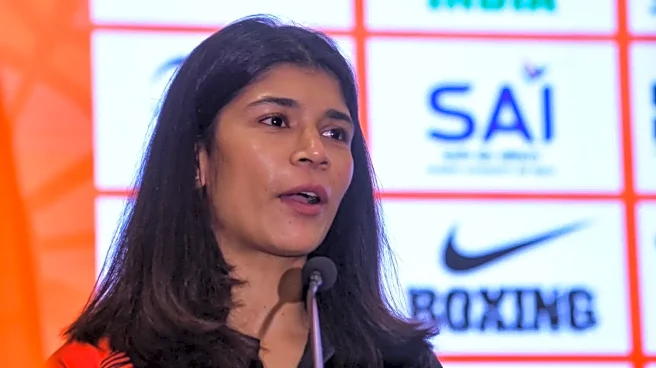

/images/ppid_a911dc6a-image-177103853218557950.webp)

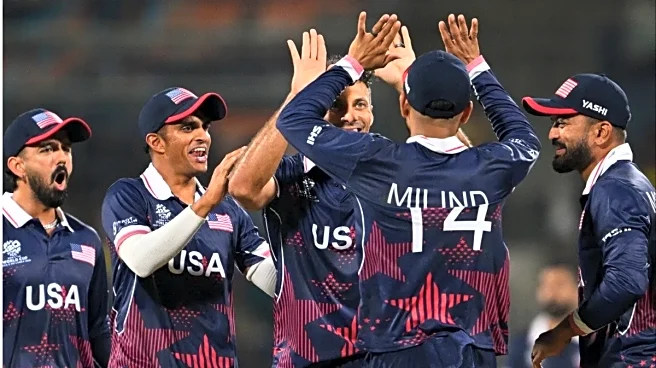


/images/ppid_a911dc6a-image-17710364781122582.webp)
/images/ppid_a911dc6a-image-177103642565816962.webp)
/images/ppid_a911dc6a-image-177103504309993710.webp)
/images/ppid_a911dc6a-image-177103508492594205.webp)
